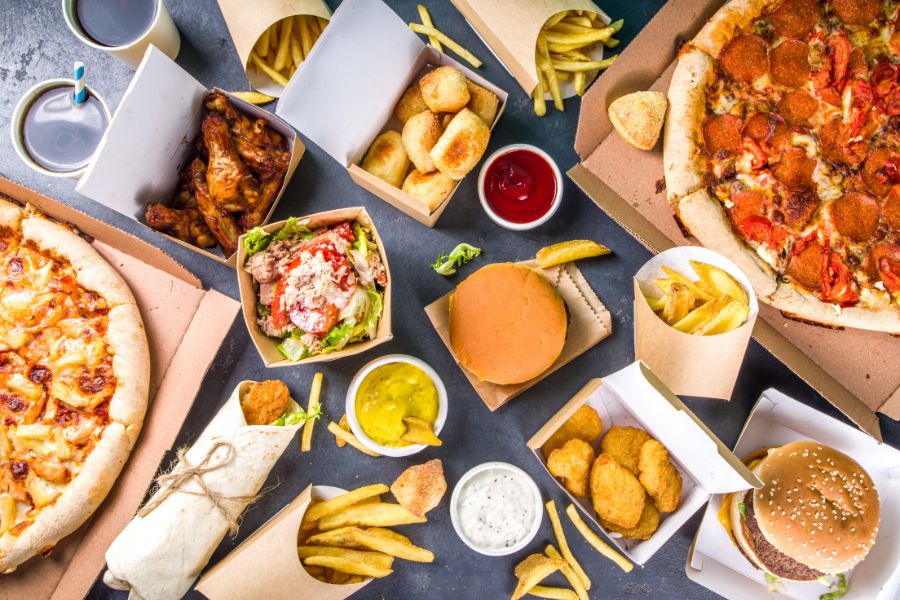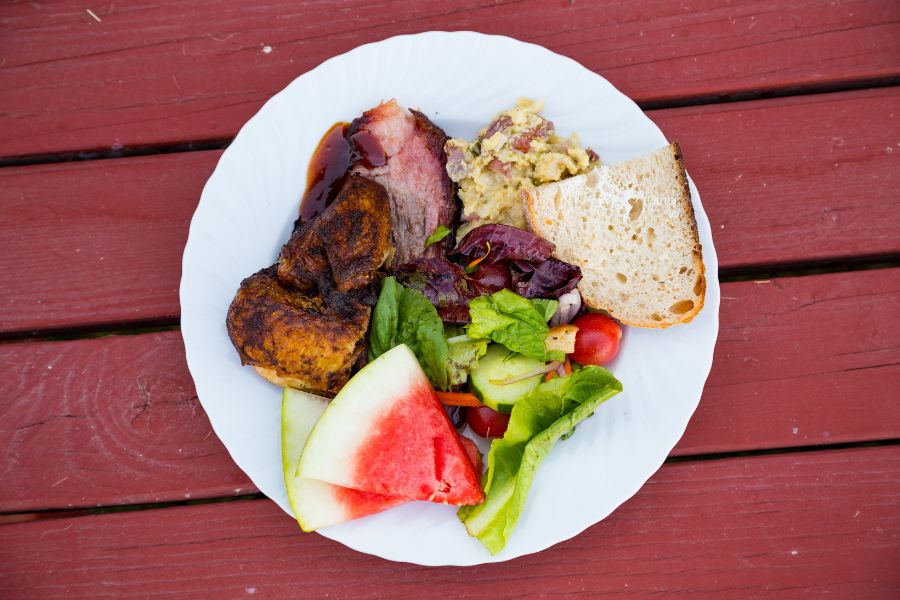Cheat meals spark debate in nearly every fitness circle.
Are they a strategic way to stay sane and fuel progress—or a gateway to guilt, binges, and setbacks?
We asked health and fitness experts for their take on when (and if) cheat meals belong in a long-term plan. Here’s what they had to say about using indulgences wisely—without sabotaging your goals.
Use Cheat Meals Strategically During Cutting Phases

As a lifelong natural lifter, cheat meals have played a strategic role in my cutting phases.
I typically incorporate them during weight loss periods when I’ve been eating clean for a long stretch.
For those on a natural transformation journey, it can take months to get truly shredded—so cheat meals offer two main benefits: they provide a much-needed mental break, and they may temporarily boost leptin and glycogen stores to support performance.
To make them work, I use one trick: in the days leading up to a cheat meal, I follow a zero- or low-carb diet for 3 to 7 days.
That way, my glycogen stores are depleted going in, so the extra calories are more likely to refill that “empty tank” rather than be stored as fat.
When used strategically, cheat meals have been incredibly helpful. Just knowing I’ve got a reward coming up helps keep me disciplined all week.
They leave me feeling refueled and ready to hit the gym hard again.
But I’ve also learned the downside—there was a stretch where I started chasing cheat meals more than the results.
One meal turned into a day, and I’d blow past my calorie target by thousands. Even if the physical impact was small, it shifted my mindset.
I found myself fixating on the next cheat instead of the bigger goal.
That’s when I realized: the real challenge with cheat meals isn’t just physical—it’s mental discipline.
Tamil Arasan, Founder & Natural Fitness Coach, NatFit Pro
Reframe Cheat Meals as Flex Meals for Sustainability

From my perspective as a functional medicine practitioner, cheat meals are often misunderstood.
For most people, they’re not inherently harmful, but they can become a setback if they trigger inflammation, blood sugar spikes, or gut imbalances, especially for those dealing with chronic conditions like Type 2 diabetes, autoimmune disorders, or metabolic dysfunction.
I prefer to reframe “cheat meals” as planned flex meals or rewards, not as a moral failure or a license to binge.
The goal is to help patients maintain long-term consistency without creating a restrictive or guilt-driven relationship with food.
If someone has a solid foundation—balanced blood sugar, healthy digestion, and low inflammation—then an occasional indulgence isn’t likely to derail progress.
But for individuals who haven’t addressed the root causes of their weight or health struggles, cheat meals can create more harm than good.
One patient I worked with would eat “clean” all week, then spike her glucose and experience brain fog and joint pain after a weekend of so-called cheat meals.
Once we stabilized her metabolism, supported her liver, and addressed gut inflammation, those reactions became less severe—and she no longer felt the need to cheat.
So, are cheat meals helpful or harmful? It depends on the person’s current metabolic state, mindset, and goals.
Used strategically, they can be a tool for sustainability and psychological relief. But if they’re being used to reward deprivation or justify poor choices, that’s a sign we need to adjust the plan and not just the meal.
Dr. Jonathan Spages, Doctor, Author, Advanced Natural Health Center
Don’t Ban Favorite Foods—Balance Them Smartly

Life happens, and your diet is going to be far from perfect.
It’s important to move forward with your goals in mind (count all the small successes, make achievable goals, have an accountability partner) rather than having a “cheat meal” and beating yourself up.
You don’t have to give up your favorite foods to lose weight.
People who keep the weight off long term usually do it by finding balance, not by cutting out foods completely. This helps keep their diet and weight loss sustainable.
The key is making smart choices most of the time, knowing your portions, and fitting in your favorites in a way that works for you.
Cheat meals exist in an all-or-nothing mindset – people tend to go on a diet or go all out. It’s actually counterintuitive to “start a diet” as restrictions often lead to cravings and loss of control or overeating. It’s a futile, never-ending diet cycle.
Instead of waiting for the “perfect day” to start a diet, start making small changes now that are sustainable and reasonable for your lifestyle.
Each person’s life looks very different, so you have to ask yourself what are the action steps that you can successfully take.
Do not try to compensate when your diet didn’t go as planned or because you had a cheat meal. That means no skipping meals or making up for it the next day. The guilt and shame eventually will feed back into the never-ending diet cycle.
Amy Chow, Registered Dietitian, CEO, BC Dietitians
Plan Indulgences After Tough Workouts, Then Move On

Cheat meals can be a useful psychological reset, but only when they’re planned, portion-controlled, and truly occasional.
A deliberate higher-calorie meal once every week or two can ease cravings, replenish muscle glycogen after hard training, and remind people that healthy eating isn’t all-or-nothing.
The trouble starts when “cheat” turns into a weekend-long binge that erases a week’s deficit, spikes blood sugar, and leaves you lethargic.
My advice: schedule the meal after a tough workout, keep protein high, pick one favorite indulgence (pizza night or dessert, not both), and get back to your usual routine at the next meal.
That way the break helps adherence without derailing progress.
Julio Baute, Medical Doctor, Invigor Medical
Avoid the ‘Cheat’ Mentality for a Healthier Relationship with Food

I don’t think they are necessarily the healthiest option, especially when they involve consuming very high-calorie meals in one sitting.
I believe they can even be harmful for some people, as they often create too much of an “emotional connection” with food.
Labeling certain foods as “cheats” can lead to a restrict-binge cycle and foster a mindset where food becomes associated with guilt or reward, rather than nourishment and balance.
Instead, it’s more sustainable to incorporate all types of foods, including snacks or treats, into your daily calorie allowance.
This helps remove the “forbidden food” mentality and encourages a more balanced, moderation-based approach to eating.
Iva Maja Cvetko, Doctor, AlynMD
Final Thoughts
Cheat meals aren’t inherently good or bad—it all comes down to mindset, planning, and personal health context.
For some, they provide a psychological reset that makes staying on track easier.
For others, they may trigger cycles of guilt or physical discomfort.
The key takeaway? Know your body, ditch the all-or-nothing mindset, and build a plan that gives you both structure and flexibility.

Leave a Reply